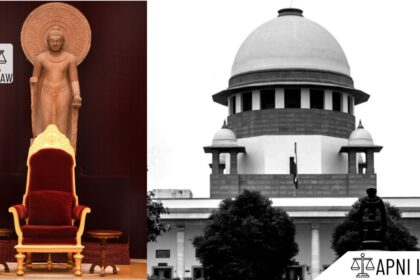Index
- Introduction
- Provisions For Self-Representation Under The Civil Procedure Code
- Fighting One’s Own Case Without A Lawyer
- Courts Where Self-Representation Is Compulsory And No Advocates are Allowed
- Are Lawyer Needed In Consumer Forums
- Conclusion
Introduction
Section 32 of the Advocate’s Act stipulates that courts may permit any individual to appear before them, even if they are not a registered advocate. This provision grants individuals the statutory right to defend their own cases, albeit with certain exceptions.
Article 19 of the Constitution of India guarantees citizens various freedoms, including the right to practise any profession or to engage in any occupation, trade, or business. Consequently, the right to practise law, as a profession, is a fundamental right afforded to all citizens. This implies that individuals have the right to represent themselves in any court in India. The exceptions to this rule are regulatory and are intended to impose reasonable restrictions for the public’s interest.
Each court has its own set of procedural guidelines, which include provisions for self-representation. These rules outline the circumstances and conditions under which an individual may contend a case without the assistance of an advocate.
Regulatory provisions do not prohibit the practice of law. These rules require a person who is not an advocate in the High Court to file an appointment alongside a local advocate. There is no absolute bar on appearing in court. With the court’s permission, a non-advocate can still appear even without a local advocate. Additionally, an advocate not on the High Court’s roll of advocates can appear with a local advocate. Alternatively, such an advocate can apply to the court for permission to appear without a local advocate, and in appropriate cases, this permission may be granted.
Provisions For Self-Representation Under The Civil Procedure Code
Order 3 Rule 1 of the Civil Procedure Code states that any application, appearance, or act in court can be undertaken by
- The party involved in the case, appearing in person.
- Any recognized agent of the party.
- A leader representing and acting on behalf of the party.
This rule is subject to the court’s discretion. These general rules consider the appearing person as a party to the suit rather than an individual. Agents, as mentioned in the second point, can only apply but not plead.
A power of attorney holder is authorised to act on behalf of the principal.
Fighting One’s Own Case Without A Lawyer
There are many instances where a party involved in a case has changed multiple lawyers and eventually finds themselves without the financial means to hire a new one.
One viable solution is to represent oneself in court.
While you will have an in-depth knowledge of the facts, since they represent your own timeline, you must also be well-versed in both the substantive and procedural aspects of the law.
There is a definite and mechanical procedure for filing cases in courts. Courts are bound by their own procedures. There are specific steps that must be followed for everything.
Courts Where Self-Representation Is Compulsory And No Advocates are Allowed
Rule 37 of the Family Court Rules, 1988, allows the court to permit parties to be represented by a lawyer.
In interpreting Section 13 of the Family Courts Act, 1984, and Rule 37 of the Family Court Rules, 1988, the Division Bench in Lala Mahadeo Joshi v. Dr. Mahadeo Sitaram Joshi held that Section 13 does not impose a total bar on legal representation, as this would be unconstitutional.
The court also noted that denying permission for legal representation might result in a miscarriage of justice.
In Kishorilal Govindram Bihani v. Dwarkabai Kishorilal Bihani, the court reiterated that parties may be allowed to have legal representation in Family Courts, especially considering the complexities of certain cases.
Thus, even where statutes expressly bar legal representation without court permission, courts have generally held that such permission should not normally be denied.
The Arbitration and Conciliation Act, 1996, contains no provision barring parties from being represented by a legal practitioner. In fact, the explanation to subsection (8) of Section 31 suggests that lawyer representation is permitted.
Are Lawyer Needed In Consumer Forums
Lawyers are not mandatory in consumer forums, but their assistance can be beneficial for navigating legal procedures and ensuring proper representation.
The Consumer Protection Act establishes quasi-judicial bodies such as District Forums, State Commissions, and the National Commission which, though endowed with some powers of a civil court, are not courts. These bodies are designed to provide consumers with inexpensive and speedy remedies.
The established forums operate without the need for court fees or formal court procedures. Any consumer can file a complaint, which doesn’t necessarily have to be filed by the complainant themselves, a recognized consumers’ association can also represent them. In cases where multiple consumers have a similar complaint, one or more individuals can file a complaint on behalf of all. Additionally, both the Central and State Governments can act on behalf of consumers.
The goal is to ensure consumers receive justice and fair treatment regarding the goods and services. They purchase in a market often dominated by large trading and manufacturing entities.
Conclusion
Self-representation under the Civil Procedure Code provides individuals with the flexibility and empowerment to navigate the legal system independently. Certain courts and tribunals mandate self-representation to streamline processes and promote direct resolution of disputes. In consumer forums, the option to represent oneself without a lawyer further simplifies the pursuit of justice for consumers. Ultimately, while the legal system accommodates self-representation to enhance access to justice. The complexities of legal proceedings often necessitate careful consideration of whether to engage professional legal assistance.











